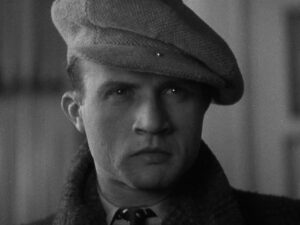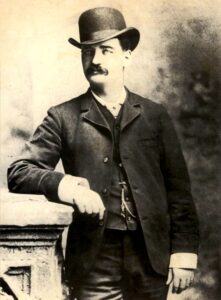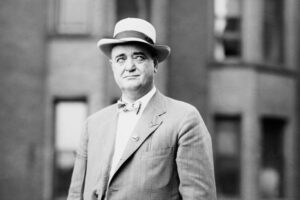by James Scott Bell
@jamesscottbell
It’s a First-Page Critique bonanza here at TKZ. This one was submitted as a thriller. See you on the other side of the waters.
Turbulent Waters
In fluid dynamics, turbulent flow is motion
Characterized by chaotic changes in pressure.
Jake Burton knew next-to-nothing about diesel maintenance, but he knew about the marine mechanic’s thirst for Canadian whiskey, and he knew even more about the fine art of negotiation with thirsty men.
“I dunno, Jake. State law says every boat’s gotta have a certified captain and a licensed and bonded mechanic aboard. Fines are high if the Coast Guard catches you.”
“Nobody’s going to catch me—you said it yourself, the engine in that boat is running smooth, and the trip only lasts four hours. You’ll be back on board for the afternoon tour.” Jake pressed the knuckle of his thumb against his upper lip to stop an itch, then pulled a fifty from his wallet, slapped the worn leather shut, and handed the bill to the other man. “Take the morning off. Go get yourself a big breakfast.”
The mechanic took the bill and stuffed it into the pocket of his oil-stained coveralls. He scratched his head. “I’m just not sure. I could lose my job—”
“Okay, look, here’s another twenty. Honest, that’s all I’ve got. You’ve officially cleaned me out.” He pulled a lone bill and stood for a moment holding the empty wallet wide in illustration. “But, I do have a little something else you might like.”
The man took the bill, pushed it into his pocket with the fifty. “What’s that?”
Jake pointed his thumb over his shoulder. “See that blue Ford pickup in the lot? Well, there’s a brand-new bottle of Crown Royal still in the box under the passenger’s seat. I could toss that in to sweeten the pie.”
The mechanic shielded his eyes against the bright morning sunlight and looked across the marina parking lot. “You mean that old beater?”
Jake nodded and tilted his head. “Deal?”
The mechanic shifted from one foot to the other, pulled the lobe of his left ear, and sighed. “Yeah, okay, deal. Just make sure you bring my box back the minute you get off the boat. And don’t lose any of my tools overboard.” Without another word, shuffled off to the blue truck, the purple box, purple bag, and golden liquid.
Jake dug through the contents of the borrowed toolbox, but was interrupted by the threatening notes of Mussorgsky’s “Night on Bald Mountain”—the ring tone he’d chosen for his ex-wife’s number.
***
JSB: On a macro level, I like this scene. It’s active (dialogue is always an action) and there’s a disturbance—a criminal enterprise is afoot and an angry ex-wife is calling! I certainly would turn the page to find out what she has to say, and what Jake’s boat trip is all about. I get a Florida-noir vibe from this, which is John D. MacDonald territory. I’m interested.
Now let’s see if we can’t do some editing which will ratchet up that interest for the reader. Beginning with your epigraph.
You probably know that an epigraph normally goes on its own page. That’s what I’d advise here, as it gets in the way of the active opening. Also, the way you have it makes it look like lines from a poem (the capital C in Characterized). Surely it’s not, unless it’s the worst poem ever written. So why is it broken up that way? It should be: In fluid dynamics, turbulent flow is motion, characterized by chaotic changes in pressure.
Further, an epigraph always requires a source. Thus:
In fluid dynamics, turbulent flow is motion, characterized by chaotic changes in pressure. — Diesel Maintenance For Dummies
A good epigraph should entice the reader, raising the question What does this have to do with the plot? and somehow preview the tone of the story.
Thus, I actually like this quote because it does those things, especially the last part, chaotic changes in pressure. Two good things in a thriller. Just put it on a stand-alone page and tell us where the quote comes from.
On to the first line.
Jake Burton knew next-to-nothing about diesel maintenance, but he knew about the marine mechanic’s thirst for Canadian whiskey, and he knew even more about the fine art of negotiation with thirsty men.
An often overlooked aspect of the craft of fiction is the shaping of sentences for greater effect. I’ll start off with this tip: The period is your friend! Use it like voting in Chicago: early and often.
This is especially important in thrillers, because you want the prose to pack a punch. One sharp jab or left hook is better than three glancing blows. I feel you opening line is like the latter—it’s three sentences strung together. That’s a lot of work for the reader. Yes, there will be times when you want to use a more complex sentence structure, but I’d advise you not to do it off the bat.
And consider another aspect of the effective sentence: the right word to end with. You should always end with the most potent word or phrase, for the obvious reason that it will more forcefully compel the reader to keep reading.
Here’s a suggested edit:
Jake Burton knew next to nothing about diesel maintenance, but he knew about the marine mechanic’s thirst for Canadian whiskey.
Whiskey is a strong word to end on. It’s got a good sound. It also raises a mystery in the reader’s mind: How is Jake going to entice this mechanic, and why? Leave it there. Lose the part about negotiation. That’s telling us what we’re about to see. Let the action of the scene do the work.
Notice also that I removed the hyphens from next to nothing. You don’t use hyphens to connect words unless they are being used as an adjective, e.g., Florida-noir vibe; minority-owned business.
So get in the habit of looking for alternative sentence endings. I wouldn’t do this while you’re actually writing, because you want to be in flow. That’s why I like to edit my previous day’s work before I start in again. It’s the best time for me to look at my sentences.
Now, after that first line, which is in Jake’s POV, the next action (and remember, dialogue is action) should be from Jake. Having the mechanic talk first is a slight jolt to our expectations. Not fatal, but it does require a bit of readjustment as we read. Instead, you can simply reshuffle some of the dialogue. I’ll do a little of it to show you what I mean:
Jake Burton knew next to nothing about diesel maintenance, but he knew about the marine mechanic’s thirst for Canadian whiskey.
“See that blue Ford pickup in the lot?” Jake said. “There’s a brand-new bottle of Crown Royal still in the box under the passenger’s seat. I could toss that in to sweeten the pie.”
The mechanic shielded his eyes against the bright morning sunlight and looked across the marina parking lot. “You mean that old beater?”
“Deal?”
“I dunno, Jake. State law says every boat’s gotta have a certified captain and a licensed and bonded mechanic aboard. Fines are high if the Coast Guard catches you.”
“Nobody’s going to catch me. You said it yourself, the engine in that boat is running smooth, and the trip only lasts four hours. You’ll be back on board for the afternoon tour.”
Notice a few edits. I put in said as a dialogue attribution. You don’t have any in this entire page. I fear you may be falling for the It’s more skillful and literary never to use any dialogue attributions at all trap. It’s a trap because you end up using a lot of innocuous action beats to indicate who’s speaking. Like Jake nodded and tilted his head (which is something I have trouble picturing). Every time you do that the reader has to do a little “work” to form a picture. They’re also subconsciously wanting to know the significance of it. If it’s only to clue us in to who’s talking, that creates an unneeded burden for the reader.
I once read a novel by a friend who had boasted to me about not using a single said. About halfway through the book, I kept wondering why I felt tired reading it. Like it was a bit of a slog (not a good thing for a thriller). That’s when it hit me. Instead of said I was getting a lot of pulled his earlobe and tapped the desk with a pencil and crossed his legs. None of those things had any significance to the story. They were just substitutes for said. The pictures were wearing me out.
The beauty of said is that it does its job almost invisibly and then politely gets out of the way. It doesn’t require any reader effort. Use action beats on occasion for variety, yes. But make sure they reveal something relevant, like the character’s emotion:
Danny spit out his coffee. “You did what?”
Here’s another sentence that takes some effort: Jake pressed the knuckle of his thumb against his upper lip to stop an itch, then pulled a fifty from his wallet, slapped the worn leather shut, and handed the bill to the other man.
Yeesh, that’s four actions in a single, run-on sentence. Is it really crucial for us to know that Jake suppressed an itch? Or that he slapped his wallet shut? Maybe this pays off later, but if not I don’t see any point. Call in your friend, the period, once again:
Jake pulled a fifty from his wallet. “Take the morning off. Go get yourself a big breakfast.”
The mechanic looked at Ulysses S. Grant. “I could lose my job—”
I took out the bit where the mechanic stuffs the bill in his pocket, because if he’s thinking he could lose his job, he wouldn’t accept the deal yet. I do, however, I like the detail of the oil-stained coveralls, as it adds to characterization. How about this:
Jake pulled a fifty from his wallet. “Take the morning off. Go get yourself a big breakfast.”
The mechanic looked at Ulysses S. Grant. “I could lose my job.”
Jake stuffed the bill in the pocket of the mechanic’s oil-stained coveralls. He pulled a last bill from his wallet. “Here’s another twenty.” [Etc.]
I hope you see the value of the period, and punchier sentences. Which doesn’t mean you shouldn’t use variety. There’s no rule. Just listen to the sound and see if you can’t break up a longer sentence into two shorter ones. And end with a strong word or phrase.
Speaking of that variety, I like the last line, for it uses my beloved em dash. But I think there’s a stronger way to end it:
Jake dug through the contents of the borrowed toolbox, but was interrupted by the threatening notes of Mussorgsky’s “Night on Bald Mountain”—the ring tone he’d chosen for his ex-wife.
Since you tell us it’s a “ring tone” we don’t need the added bit about this being her number. And ex-wife is a snappier way to end the sentence. You might even experiment with simply ex, which everyone understands. How to choose? Say it out loud a few times, and also (this is the key): how would your character say it? You want your narrative sentences to sound as much like the POV character as possible.
The difference your re-worked sentences make will be the difference between a good read and a great one—and it’s great reads that make a career.
Again, I like this setup. I’m interested in hearing what Jake’s ex-wife has to say, and what sort of caper he has in mind with the boat. With some editing, you can turn my interest into page-turning compulsion.
And now for a snappy way to end my critique: The End.
Comments welcome.



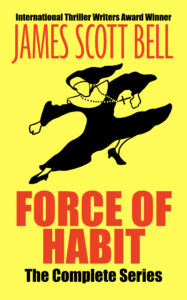
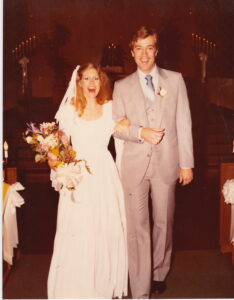
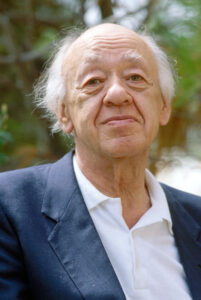
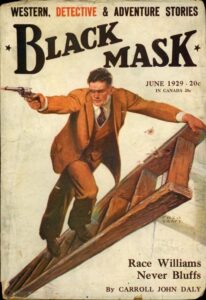 Would there be a Mike Romeo without Race Williams?
Would there be a Mike Romeo without Race Williams?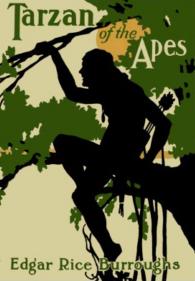
 Here at TKZ we love to talk about the nuances of the craft. These take the form of both things to do and things not to do. As Brother Gilstrap likes to remind us, these aren’t “rules.” They are, however, basics that work every time, and if you choose to ignore them, that’s your business. But if your business is also to make dough with your writing—which means connecting with a large slice of the reading public—you would be wise to attend to the fundamentals.
Here at TKZ we love to talk about the nuances of the craft. These take the form of both things to do and things not to do. As Brother Gilstrap likes to remind us, these aren’t “rules.” They are, however, basics that work every time, and if you choose to ignore them, that’s your business. But if your business is also to make dough with your writing—which means connecting with a large slice of the reading public—you would be wise to attend to the fundamentals.
